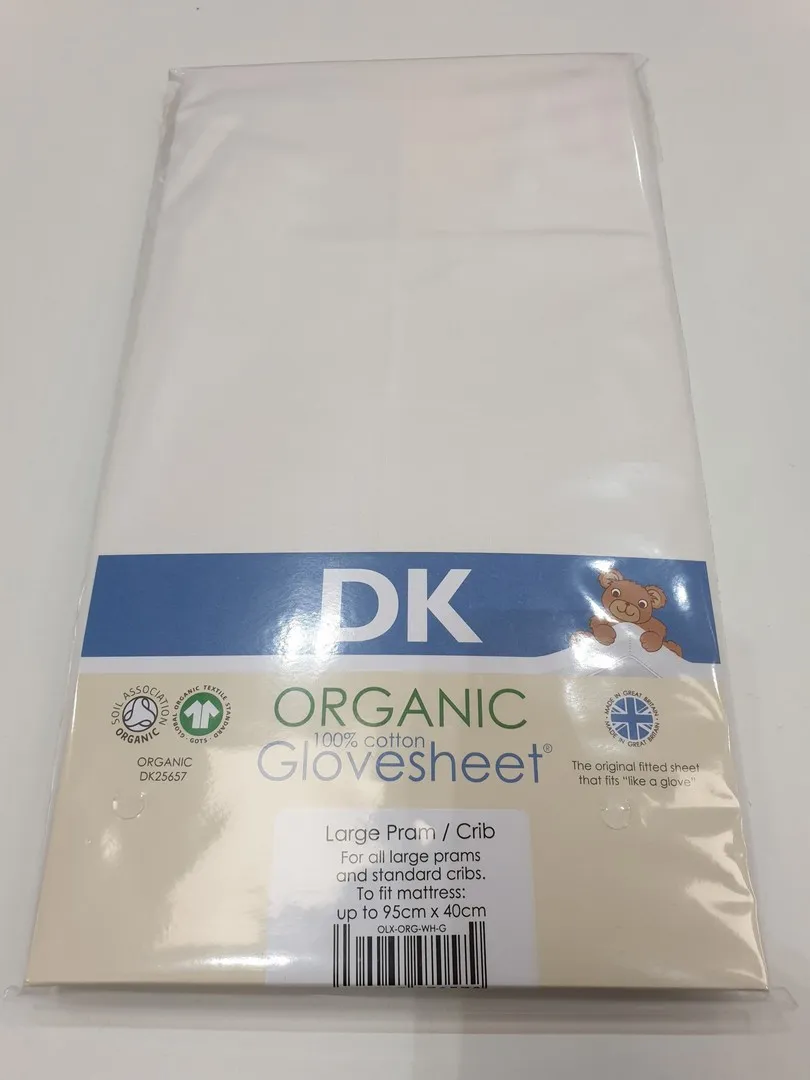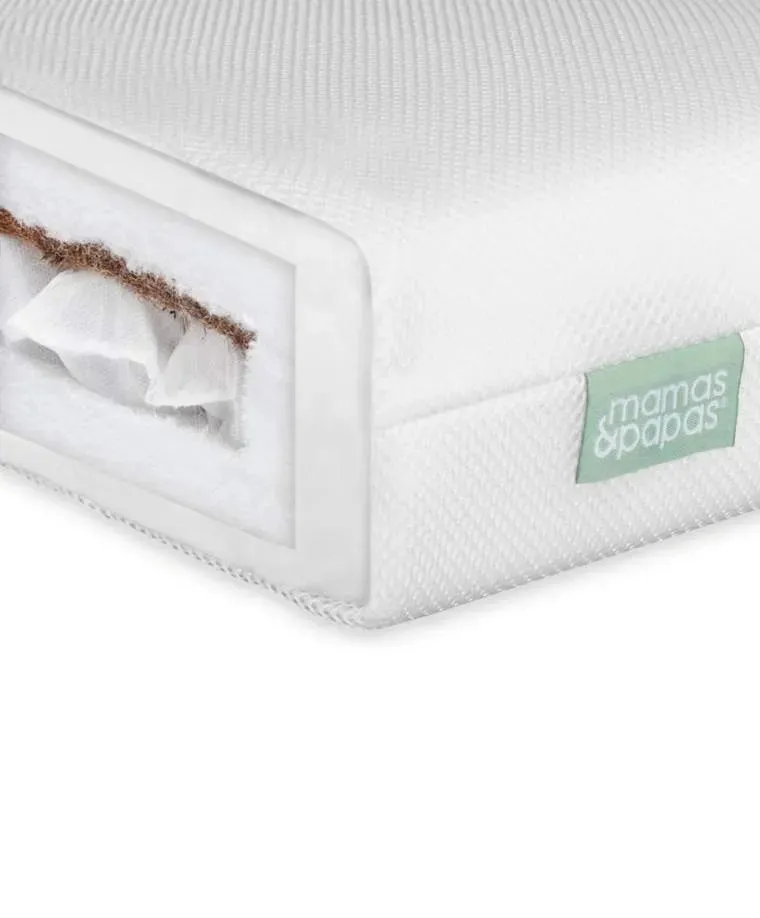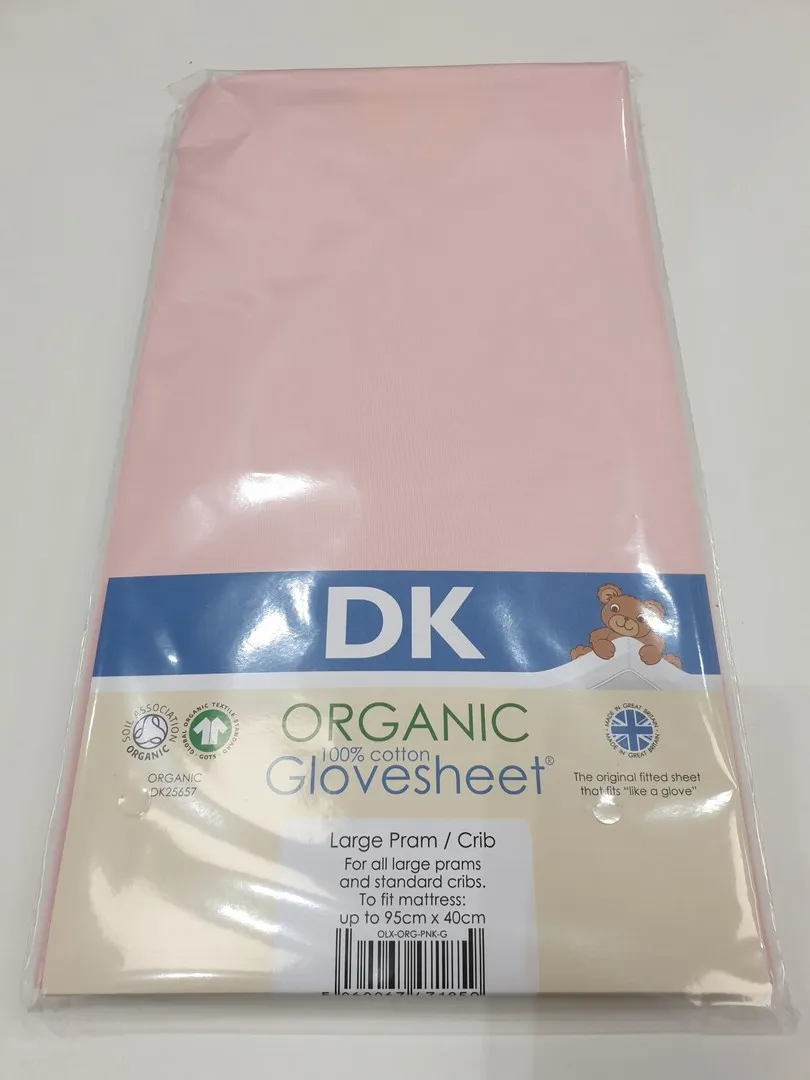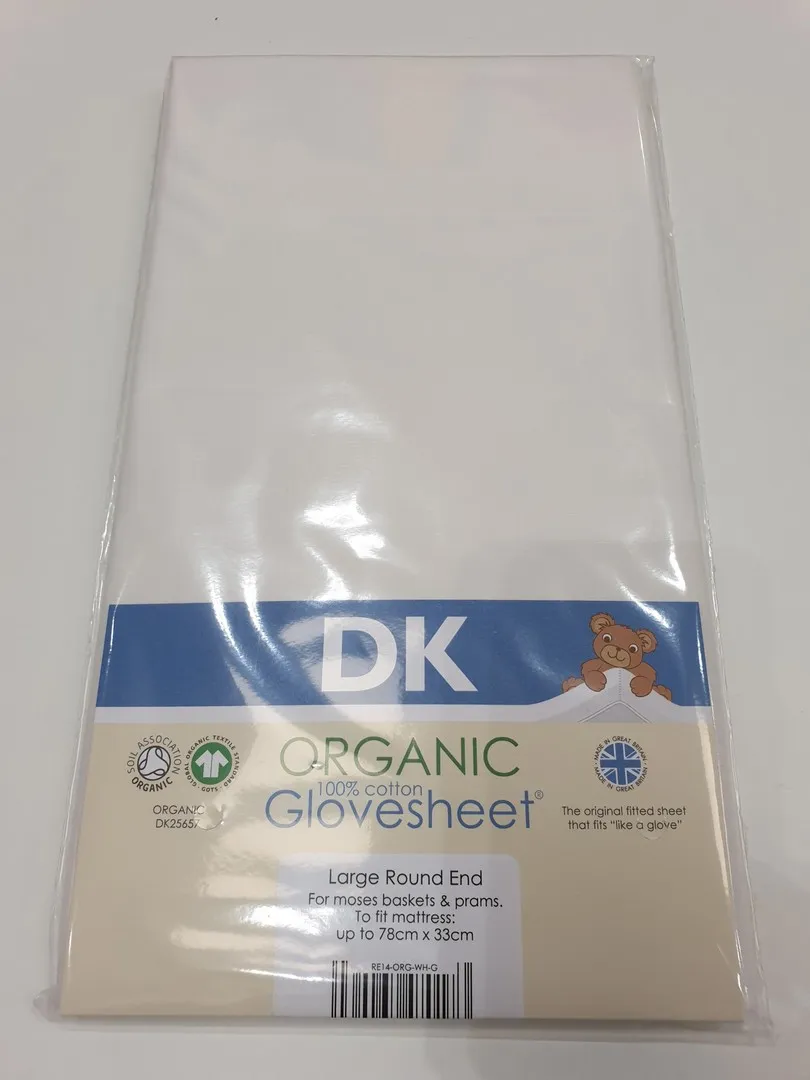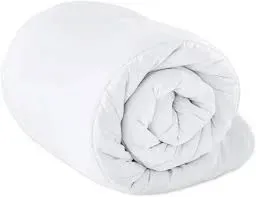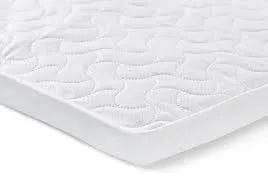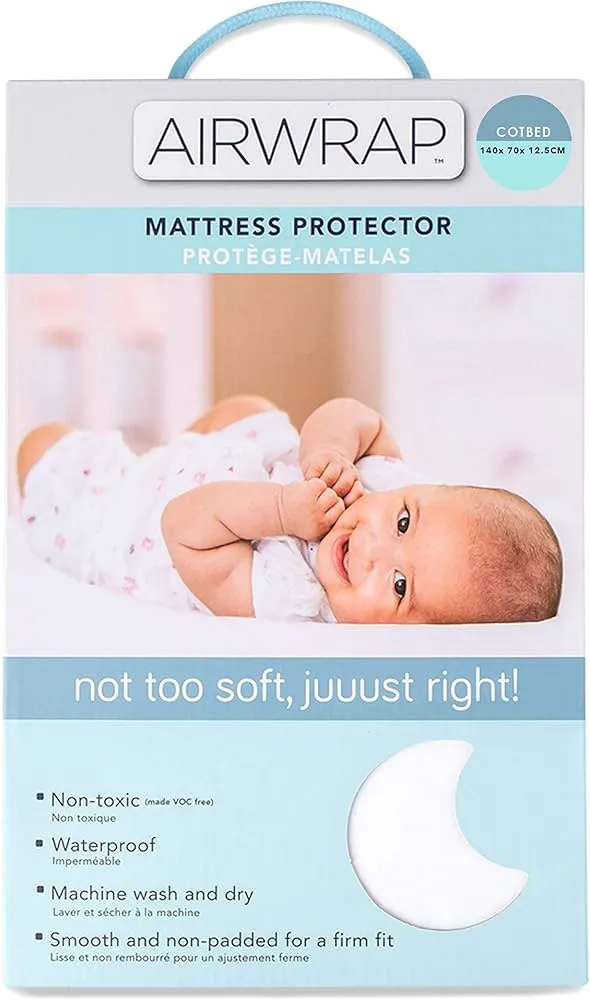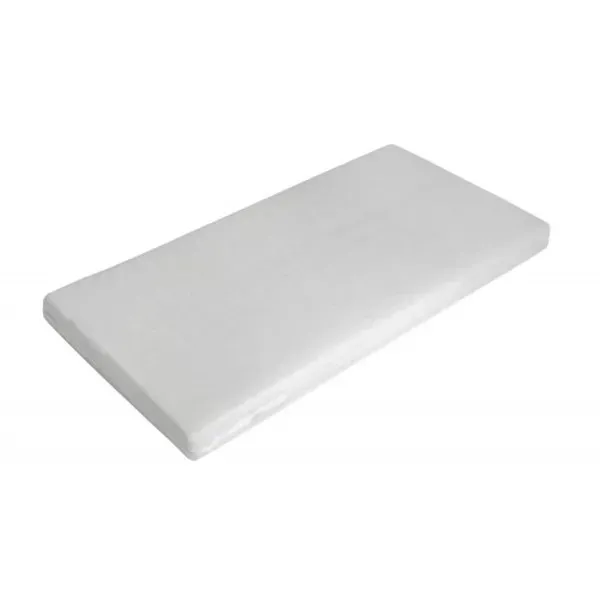Dk Organic Glovesheet Large Pram / Crib Sky White
Simply create an account with us or login and you will be able to purchase this product by 10% deposit and make future payments through your account. Learn more >
For 95x140 cm mattress
All Glovesheets are made from top quality 100% combed cotton interlock (1). Interlock is a premium double sided Jersey with increased quality, softness, thickness and strength. This is one reason they last so well, and means that they should last a number, potentially even a few generations of children. We occasionally have Grandmothers calling the office, because after 30 years of use they think they might need to buy another set! The deep corners (2) and elastic edge keep them firmly attached to the mattress, without slipping or rucking. We use a special quality elastic to neatly finish the opening, (3) and allow easy changing of the sheets. This elastic also dries really quickly after washing Why is Organic cotton better? Regular, non-organic cotton production is very polluting to the environment. Nearly 16% of the world’s insecticides are used on cotton growing. Only oil production uses more chemicals. Organic cotton helps protect the environment by removing toxic pesticides and other chemicals from the growing and processing. By removing these costly inputs, workers in developing countries can afford to improve their social conditions, at the same time reducing the effects of toxic chemicals on their health. Image Caroline Herbert Organic cotton benefits the environment. Organic fibers are grown without the use of synthetic fertilizers or toxic pesticides. By building soil fertility organic farmers help lock CO2 into the soil, helping mitigate climate change. It also avoids the use of the toxic pesticides that, in non-organic systems, are responsible for poisoning wildlife and rivers, as well as killing an estimated 16,000 people each year. It’s better for workers By avoiding toxic pesticides cotton workers benefit by avoiding the associated health problems and deaths common in non-organic cotton production. Avoiding pesticides also reduces production costs and farmer debts – the burden of pesticide debt has resulted in thousands of suicides in the developing world. It’s GM Free GM is banned in organic systems, while an estimated 30% of all cotton grown worldwide is genetically modified. GM cotton poses a potential risk to wildlife and human health, as well as exposing farmers to unnecessary expense.

